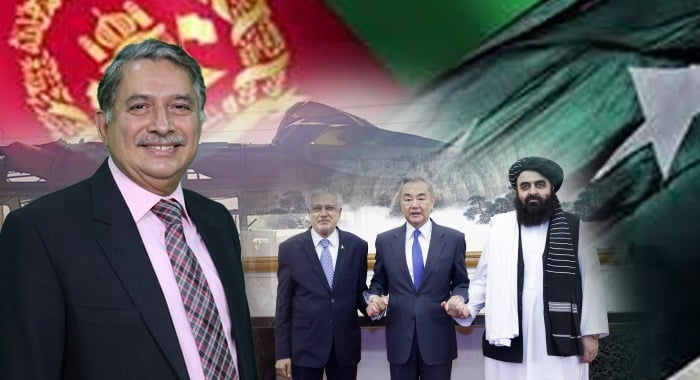In the constantly shifting landscape of international relations, it has become increasingly clear that permanent friends or foes do not exist—only permanent national interests do. This core principle has once again been validated by the recent trilateral meeting in China between Pakistan’s Deputy Prime Minister and Foreign Minister Ishaq Dar, Chinese Foreign Minister Wang Yi, and Afghan counterparts.
Despite a period of heightened tensions and accusations—primarily that Afghanistan’s soil is being used for terrorist activities against Pakistan, this meeting indicates a significant re-calibration rooted in strategic realism, not idealism. Both Islamabad and Kabul appear to be re-evaluating their priorities in view of shared regional and economic imperatives.
The Shift from Ideology to Interests
Idealism in foreign policy—rooted in emotional or ideological affinity—can be politically attractive but strategically hazardous. Today, the realpolitik approach has taken center stage. As the regional climate evolves, the lens of national interest has overridden emotional grievances, pushing both sides toward engagement rather than estrangement.
Afghanistan now seems to realise that allowing its territory to be used by proxies will only undermine its credibility, stability, and economic future. With thousands of Afghans residing, studying, or seeking treatment in Pakistan, diplomatic isolation would directly impact the Afghan populace.
China as the Strategic Bridge
The role of China as a stabilising force in this geopolitical triad cannot be understated. Celebrating 74 years of unwavering bilateral relations, Beijing has once again emerged as the regional fulcrum, facilitating dialogue and enabling cooperation through economic interdependence. China’s Belt and Road Initiative (BRI) and the extension of CPEC into Afghanistan will only be viable if peace and cross-border cooperation prevail.
Connectivity is the currency of 21st-century diplomacy, and Afghanistan’s inclusion in the regional trade and transit matrix is key to fulfilling China’s vision of a Euro-Asian corridor.
India’s Propaganda and Strategic Miscalculations
On the eastern front, India’s response to the Pahalgam incident and its subsequent military misadventures have backfired diplomatically and militarily. The Indian narrative, pushed through its state-backed media ecosystem, has been exposed on global platforms like The New York Times, BBC, and Al Jazeera, all pointing to fabricated claims and actual battlefield failures—particularly the loss of advanced fighter jets like Rafales and MiG-29s.
Even within India, opposition voices, especially from the Congress Party led by Rahul Gandhi, have questioned the Modi government’s fabricated triumphs, exposing fractures in India’s internal consensus on war narratives.
The Khuzdar Attack: A Line Crossed
Nothing underscores the urgent need for strategic clarity more than the recent Khuzdar school bus attack, in which innocent children were deliberately targeted by India-backed proxies. This act of terror not only violates every tenet of international humanitarian law but also crosses all civilizational boundaries.
Such attacks aim not only to incite fear but to delegitimise the state by attacking its most vulnerable. The tribal codes that have governed our regions for centuries have always spared children—even in wartime. That boundary was violated.
A Multi-Pronged Response: Intelligence, Kinetic, and Socioeconomic
Pakistan’s response must be multi-dimensional. First, dismantling the proxy infrastructure, cutting communications, funding, and safe havens, is essential. But that alone is not enough.
Kinetic responses must be coupled with developmental investment in the affected regions. Addressing gaps in education, employment, and opportunity will cut off the recruitment pipeline that foreign actors exploit. Technical education, vocational training, and community upliftment are not side strategies—they are front-line counter-terrorism tools.
Realism Must Lead the Way
Pakistan’s foreign policy must continue to prioritise realism over reaction, connectivity over confrontation, and national interest over ideological rigidity. Whether in engaging Afghanistan, exposing India’s propaganda, or countering terrorism, the pivot toward strategic realism offers a sustainable road-map.
This is not the time for slogans—it is the time for clarity, coherence, and courage.





